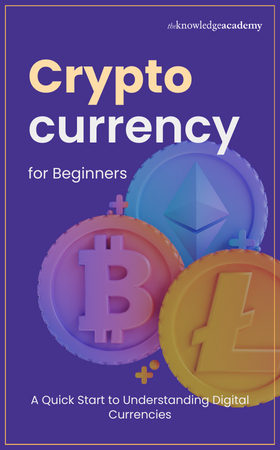All about cryptocurrency trading
• Market capitalization. The crypto-verse comprises thousands of coins and tokens, but Bitcoin is the biggest of them all, with a market cap of more than $675 billion, as of November 2023 is cashman casino legit. For context: Ethereum, the second-largest crypto by market cap, is around $225 billion.
Bitcoin (BTC) was the first cryptocurrency to be created in 2009 by a person (or possibly a group) using the pseudonym Satoshi Nakamoto. Bitcoin was designed to be independent of any government or central bank. Instead it relies on blockchain technology, a decentralized public ledger that contains a digital record of every Bitcoin transaction.
Not all cryptocurrency originates from mining. For example, miners do not mine cryptocurrency that cannot be spent. Instead, developers generate the new currency via a hard fork. A hard fork generates a new chain on the blockchain. One fork follows the new path, while the other continues the old. Cryptocurrency for beginners & investors often utilize cryptocurrencies that cannot be mined for investment rather than buying.
While cryptocurrency has become much easier to buy and sell thanks to widespread interest in it from the general public, the cryptocurrency rules and regulations are less well established than they are for other types of assets or currencies like stocks or dollars. This is true in the U.S. and in countries around the world, many of which are still determining whether to sanction the use of cryptocurrencies at all, and if they do, how to regulate them.

All about cryptocurrency
In terms of annual consumption (kWh/yr), the figures were: Polkadot (70,237), Tezos (113,249), Avalanche (489,311), Algorand (512,671), Cardano (598,755) and Solana (1,967,930). This equates to Polkadot consuming 7 times the electricity of an average U.S. home, Cardano 57 homes and Solana 200 times as much. The research concluded that PoS networks consumed 0.001% the electricity of the bitcoin network. University College London researchers reached a similar conclusion.
When it comes to cryptocurrency, there are some advantages to it versus traditional currency. An advantage of cryptocurrency is privacy. When you make a purchase with cryptocurrency, you don’t need to provide any personal information. This protects you from potential identity theft and other fraudulent activities. And no matter what happens to the government, your investment is secure.
Node owners are either volunteers, those hosted by the organization or body responsible for developing the cryptocurrency blockchain network technology, or those who are enticed to host a node to receive rewards from hosting the node network.
For the Bitcoin network, this ‘block reward’ currently sits at 3.125 bitcoins (BTC). That’s equivalent to about $209k USD at Bitcoin’s current price of $67k/coin in 2024. And remember, these ‘miners’ also get fees on top of this block reward!
While you can hold traditional currency in a bank or financial institution, you store cryptocurrencies in a digital wallet. Banks insure money kept in bank accounts against loss, while crypto has no recourse in the event of a loss.
Learn all about cryptocurrency
Before anything else, you’ll need a wallet. Yes! Even digital money requires a wallet. You store your cryptocurrencies in a wallet. Also, you can purchase cryptocurrency, buy into an initial coin offering (ICO), or execute smart-contracts using the wallet.
Altcoins are all cryptocurrencies other than Bitcoin. They’re called “alternative coins” and often offer different features, use cases, or technological advancements compared to Bitcoin. Examples include Ethereum, Ripple (XRP), and Litecoin.
There are several ways cryptocurrency can make money for you. Decentralized finance applications let you loan your crypto with interest; you can stake a compatible one on a blockchain or at certain exchanges for rewards, or you can hold on to it and hope its market value increases. None of these methods are guaranteed to make money, but many people have benefitted from them.
So far, we’ve talked about trading and investing. These methods generally require a lot of time, which not everyone has. If you’re one of those busy but efficient people, we have some other options for you.

Before anything else, you’ll need a wallet. Yes! Even digital money requires a wallet. You store your cryptocurrencies in a wallet. Also, you can purchase cryptocurrency, buy into an initial coin offering (ICO), or execute smart-contracts using the wallet.
Altcoins are all cryptocurrencies other than Bitcoin. They’re called “alternative coins” and often offer different features, use cases, or technological advancements compared to Bitcoin. Examples include Ethereum, Ripple (XRP), and Litecoin.
All about cryptocurrency investing
You can use these “coins” to buy things online, just like you would with regular money. However, your options of merchants that accept crypto are more limited than those who accept traditional currencies.
The network assigns a math problem to your computer (node) if you are selected. After validation is done, your work is broadcasted to the entire network. If the network comes to a consensus, this block is added to the blockchain and you are rewarded in fees. Ethereum does not currently have a block reward; it is therefore a deflationary digital asset in 2023.
Ready to learn more about investing in cryptocurrency? Beginners can gain a solid foundation of knowledge in FinTech, crypto, and blockchain technology in the self-paced Financial Technology (Fintech) Innovations Specialization by the University of Michigan. If you already have some experience, you could take your skills to the next level with an intermediate Specialization like Decentralized Finance (DeFi): The Future of Finance.
To better understand leverage, assume you enter a trade with 5x leverage. This means that your trade’s position size is 5 times the capital you staked from your own pocket (i.e., margin). Usually, the exchanges with margin trading options offer a leverage up to 100x, which is a hazardous ‘game’ and not recommended for beginners.
Solana was designed to support decentralized finance, or DeFi applications, DApps and smart contracts. It uses a unique method combining proof of stake and proof of history to process transactions quickly and securely. The platform’s native token, SOL, powers its operations.